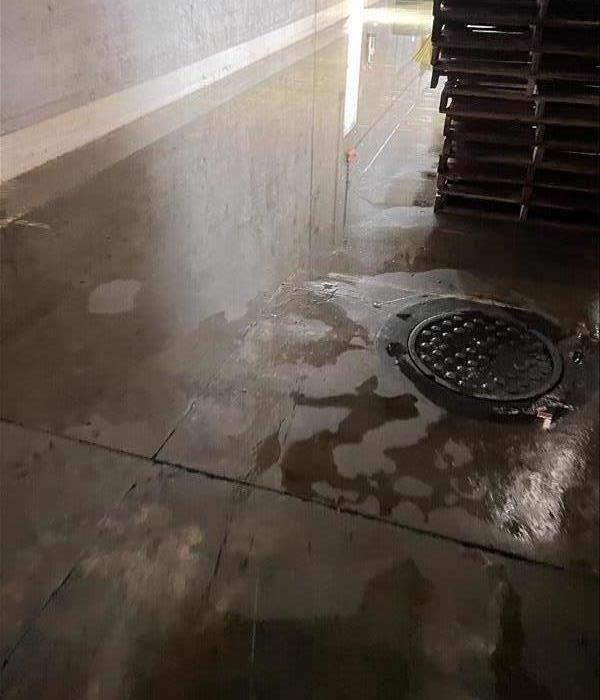How Storms Can Damage Your Foundation and How to Prevent It
9/18/2024 (Permalink)
 If you see signs of damage or need help with storm repairs, contact SERVPRO of Arlington/Jacksonville East!
If you see signs of damage or need help with storm repairs, contact SERVPRO of Arlington/Jacksonville East!
Living in Jacksonville, FL, we know how frequent storms and heavy rain can be. While we often think about immediate damage like fallen trees, roof leaks, or flooding, storms can also have a serious impact on your home's foundation. Understanding how this happens can help you take steps to protect your home and address any issues early.
How Storms Impact Your Foundation
Storms can do a lot more than just mess up your yard. They can cause real problems for your home's foundation, leading to structural issues if not dealt with promptly. Here’s how storms can affect your foundation:
Soil Erosion and Water Damage
Heavy rain and flooding can wash away the soil around your home. When the ground that supports your foundation gets washed away, it can cause the foundation to settle or shift, which isn’t good news. According to the Federal Emergency Management Agency (FEMA), flooding is the most common and costly natural disaster in the U.S., so it’s something to take seriously.
Hydrostatic Pressure
During big storms, water can build up around your foundation. This creates hydrostatic pressure, which can push against your foundation walls and cause cracks or leaks. Over time, these cracks can get bigger and lead to major structural problems.
Tree Roots and Vegetation
Storms can also affect the trees and plants around your house. When the ground is saturated with water, tree roots can expand and put pressure on your foundation walls. This can lead to cracks and other issues.
Signs of Foundation Damage
Catching foundation damage early can save you a lot of trouble down the line. Here are some common signs to look out for:
Cracks in Walls and Floors
If you notice cracks in your walls or floors, it could mean your foundation is shifting. These cracks can be horizontal, vertical, or diagonal and should be checked out as soon as possible.
Sticking Doors and Windows
Doors and windows that suddenly become hard to open or close might be a sign of foundation problems. Shifting foundations can cause frames to become misaligned, making them difficult to operate.
Uneven Floors
If your floors start to sag or become uneven, it’s a good idea to have your foundation inspected. Uneven floors are a common sign of foundation issues.
Preventing and Addressing Foundation Damage
There are several steps you can take to prevent foundation damage and address any issues that come up:
Proper Drainage
Make sure your property has good drainage to prevent water from pooling around your foundation. This includes keeping gutters and downspouts clean, ensuring your yard slopes away from your home, and possibly installing French drains.
Regular Inspections
Check your foundation regularly for signs of damage, especially after heavy storms. Look for cracks or shifts and address them quickly to prevent more serious problems.
Tree and Vegetation Management
Keep trees and plants well-maintained to prevent root growth from damaging your foundation. Plant trees a safe distance from your home and regularly trim branches to reduce storm damage risk.
When to Call a Professional
If you think your foundation might be damaged, it’s important to call a professional. Foundation problems can be complex and need expert attention. Ignoring these issues can lead to more severe damage and higher repair costs.
Protect Your Home's Foundation
Storms can do a lot of damage to your home's foundation, but understanding how and taking steps to prevent it can make a big difference. If you see signs of damage or need help with storm repairs, contact SERVPRO of Arlington/Jacksonville East. Our team is ready to help with professional restoration services to keep your home safe and sound. Stay alert and take action to protect your home from the hidden dangers of storm damage!






 24/7 Emergency Service
24/7 Emergency Service